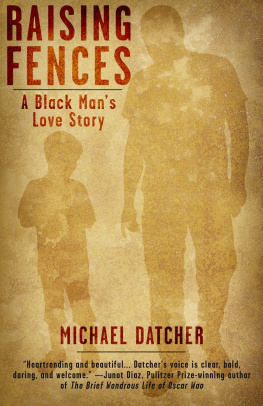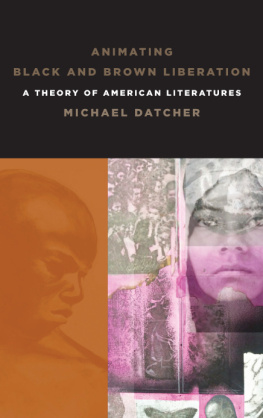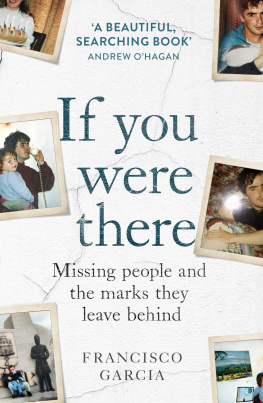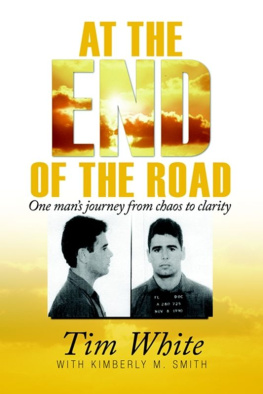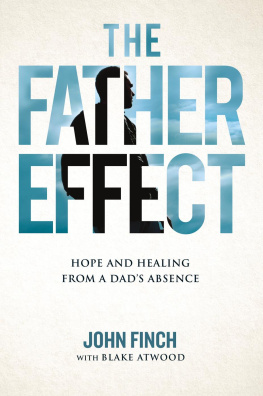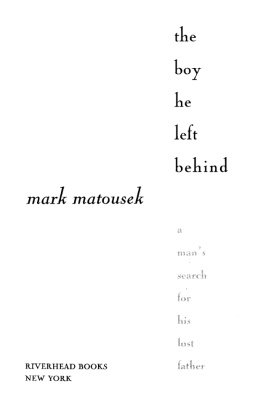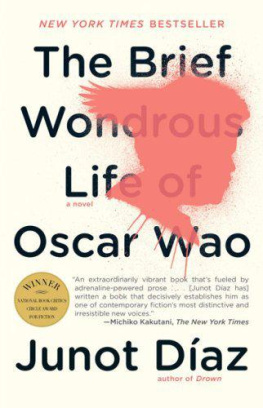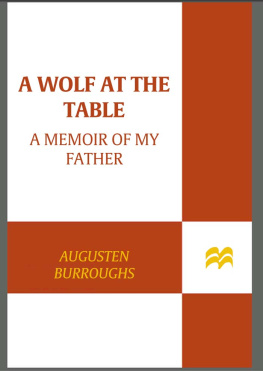Raising Fences
Michael Datcher
For Jenoyne, Gladys, Elgin, Cyndi, and my World Stage family
CHAPTER ONE
in the beginning
When I pull the letter from the mailbox, my heart starts jackhammering. I return to my second-floor Leimert Park apartment, leaping two white stairs per stride. Sit down at the heavy wooden desk. Tight-fist the letter opener butcher knifestyle to steady my trembling hand:
STATE OF ILLINOIS
CERTIFICATE OF LIVE BIRTH
There I am in Box 3, Childs Name: Michael Gerald Cole. Ive never seen Cole attached to Michael Gerald before. I stare like its the first time. Single is marked in Box 5A, not twin, triplet, or quad. Years of thinking maybe I was a separated-at-birth twin ends there at Box 5A. Born at 5:49 P.M. The box below: Mothers Full Maiden Name: Mariam Cole. Age: 17. So young, I think. Just a girl. Pregnant at sixteen. But this really isnt about her, its about Box 7: Fathers Full Name: Legally Withheld. Im not really sure what Im expecting to see. Im hoping for some hint. Some clue. Eye color. Hair color. Height. Initials. Anything. Box 9: His Age: Unknown. Box 10: His Birthplace: blank. Box 11A: His Usual Occupation: blank. Box 11B: Kind of Business or Industry: blank.
The blanks blur together on the page. I dont know who my father is. Dont know one thing about him. This truth seeps through the spaces between my rib cage, straitjackets my lungs. I am not going to cry this time. I slide out the top drawer of my black metal file cabinet. Under Medical, I file the birth certificate, his punk ass, and all the blank spaces in my life. I slam the cabinet shut.
CHAPTER TWO
the spinners
Ive been obsessed with being a husband and father since I was seven years old. Quiet as its kept, many young black men have the same obsession. Picket-fence dreams. A played-out metaphor in the white community but one still secretly riding the bench in black neighborhoods nationwide.
When the picket-fence motif was in vogue, only a few of us could get in the game. The swelling ranks of those who couldnt (the Perpetual Second Team) were forced to the sidelines, scowlingand pretending we didnt even want to play.
The bastard children of these Second Teamers stalk the same sidelines. We rarely sit on the bench. Too restless. We cant figure out if we want to beg to play or raise a stiff middle finger. Sometimes we do both. But usually we strike a cool pose. Hide Huxtable-family dreams in the corner: Cant let someone catch us hoping that hard.
We know few people believe in us. We struggle to believe in ourselves. So we pose. We have gotten good. We can pose and cry at the same timeno one sees. We can pose and cry out for helpno one hears. We are the urban ventriloquists.
Of the thirty families that lived in our east-side Long Beach, California, apartment building during the mid-seventies, I never saw a father living in a household. I never even saw one visit.
There were lots of boys in the neighborhood: Ricky, Dante, Pig Pen, Curt Rock. We rarely talked about our missing fathers. Instead, we poured our passion into our skateboards, our marbles, and our mothers. Yet the unspoken sparkled from our eyes whenever any neighborhood men showed us attention. Once in their gaze, we worked to outperform one another, trying our best to keep the manlight from straying.
Watch this! I can do a back flip off the curbHeh, betchu a quarter I can make a shot from the free-throw line.
Its likely one of these men laid the seed that sprouted into a back-flipper before them. Neighborhood rumors have a way of falling off grown-up kitchen tables and splattering on ghetto playgrounds.
We flipped, pop-locked, and did the Robot for them, but we were knowing: Men werent to be trusted. Even when our mothers didnt speak these words, their tired lives whispered the message.
I knew many of these men had kids. Where were they? Why were they watching me spin instead of their own children? No, these men were not to be trusted. How could I accept their advice when their personal lives screamed, Im lost toooo? There was too much fatherhood failure around. The disease seemed to be contagious given the epidemic in our neighborhood. These men could watch me spin, but I couldnt let them get close enough to breathe on me.
The ghetto irony: Many of my generations young spinners have become the twenty- and thirty-something men who cant be trusted. Making children who will grow up to hate them.
Circumstance, suspect choices, and fear have ways of disfiguring urban hopes with surgical precision. A four-ounce bottle of baby formula becomes much heavier than a forty-ounce bottle of malt liquor. Having five women becomes easier than having one.
CHAPTER THREE
camille
I stroll into Hollywoods Club Flame with a slight malt-liquor buzz. Slow my roll so my eyes can adjust to the semidarkness most reggae clubs favor. No air-conditioning. I can feel sweat coming of age beneath my armpits, down my back. The pungent scent of high-grade marijuana flavors the air like designer musk. Invisible men in corners send snippets of Jamaican patois slicing through the dense wall of bass-heavy dance-hall reggae. This island funk is just what I need. It pulsates through my damp chest, lubricating the stiffness that graduate school at UCLA engenders. Im in baggy black jeans, an oversized black Levis shirt, and big black stomping boots. Feeling strong and sexy. Its August 1993. The last few weeks before the quarter starts. I need to be rubbed on.
My night vision kicks in. The club is crowded with an international set from the African diaspora. Nigerians, Ethiopians, and West Indians dominate the long bar. Bright colors abound. Accents and dialects I grew accustomed to on Berkeleys campus converge with gymnastic Ebonics of black L.A. folk. Im in my element.
Despite the steadily increasing numbers, few people are dancing on the boxing ringsized floor in the middle of the club. Instead, people are checking people. Just beneath the strobe light, a dark-brown sister with her hair pulled back into a ponytail is deep inside the island groove. From time to time she closes her eyes to get deeper. Wearing white short-shorts and a small, bright-red blouse knotted above her belly button, she is moving with the slow winding confidence of a woman accustomed to the gaze of men. With only three or four other couples on the floor, many of the mens casual scanning glances end at her slim waist.
After making my way to the bar to grab a beer, I walk over to the dance floors edge. I want to watch her dance. I can tell she isnt really interested in the brother on the floor with her. Their bodies arent communicating. They arent even making eye contact. Shes winding in her own world.
The side winder leaves the boxing ring and returns to two friends near the bar. Guinness in hand, I step to her. Heavily accented loud-bar chatter camouflages my motive for leaning past her cheek, just a warm breath from her ear.
Youre gonna hurt someone dancing like that.
Hmmph, she says, angling her neck and ear away, eyelids squatting into a defensive stand. As hard as you were looking, seem like you wanna get hurt.
Seeing the choosing-in-progress, her two friends turn away and rest their palms on the bar.
Where you from, sister?
Dominican Republic, she responds, holding gaze to see if Im duly impressed. Never good at geography, I dont even know where the Dominican Republic is.
You mustve gone to school in the States. Im not hearing an accent.
I went to Locke High, then Cal State Dominguez.
What did you study?
Math, she says, her kumquat lips easing into a sly smile. So dont be saying no shit that dont add up.

